Greetings everyone and welcome to our new Substack edition, a glimpse into the creative work of the Dark Mountain Project.
FOR SOME TIME NOW we have wished to share the treasures of our ‘stacks’ with a wider audience. Since the project began in 2009 we have published hundreds of pieces in our anthologies – essays, fiction, poetry, artwork, practices, testimony – but many of the books are now out of print. So our plan is to shift our weekly online edition to this platform, interspersing new pieces with some ‘classic Dark Mountain' stories. We will also be featuring some of our key poets and artists each month, as well as the monthly newsletter with the latest news and events.
The Dark Mountain website has logged all our posts, events, teachings, performances and launch videos over the last 15 years. As a result it can be bewildering to find your way through the archive, so this specially curated Substack will act as guideline, a thread through the labyrinth, a leaner showcase of the writing and art kept on its shelves. A Dark Mountain ‘reader’, if you like, for old and new readers.
The feedback loop
For this inaugural ‘front page’ we highlight essays by Dark Mountain’s co-founders in our Long Read section, laying the tracks for two of the project’s key themes: a creative resistance to the machine and the myth of progress. Paul Kingsnorth’s seminal essay on neo-environmentalism, ‘Dark Ecology’, and Dougald Hine’s exploration of cultural collapse, ‘Remember the Future’ still speak to us, perhaps more urgently than before. Both were written for early editions at a time when to write of social and ecological collapse was considered a kind of heresy. Now, few would argue that the planet and its lifeforms were not in peril, and that our story of supremacy and separation from wild nature has blinded us to its dire consequences in the real world.
In his essay, Dougald speaks about the storyteller’s art of looping back to earlier moments in the story and how the listeners' recognition of this return brings both delight and a depth of meaning. To bring our storytelling into a non-linear framework is one of the key intentions of this Substack. The feedback loop is how living systems replenish and regenerate themselves, how Earth-based cultures remain true to their ancestral instruction, how we remember to give back to life. In an extractivist civilisation driven by the insatiable desire for the new, this looping interchange is straightened into lines and squares, the measurements of conquest. As a result, cultures become entropic and lose their vital force, their people trapped within a linear story line. They become increasingly isolated and disconnected.
Dark Mountain has never been a solo act. It started as a conversation in Oxford, became a gathering in Wales, became a book designed in Lancashire and printed in Cornwall. It has always been mycelial, using its communication network to connect people across its native Britain and the world. Many hands sparked the first Uncivilisation festival fire in 2009, and many continue to carry its original embers. Much has changed, and nothing has changed. We are still embedded in a violent and unsustainable civilisation. We still need to go down the mountain.
Since the Manifesto threw down the gauntlet, challenging writers and artists to create work in the teeth of the polycrisis, many have gone into the arena, with novels, poetry, film, artwork and long-form journalism. But in an age of ‘hero’ venturers, Dark Mountain remains at heart an ensemble project: our books are collective explorations, edited by a crew, with over 50 contributors in each issue. In a time of unravelling, none of us holds the entire story, we each hold a thread. There needs to be meeting places where our stories interweave and create a different cultural fabric. One of these places is here.
Searching for a lexicon
It is our hope that these ‘archive’ pieces bring a renewed pleasure to those who read them originally, as well as acting as an introduction for new readers to our work. In the editorial for our tenth anniversary issue we wrote:
What connects this great shoal of stories, paintings, photographs, poems, interviews and essays, is the search for a lexicon that not only explores the existential crisis we share, but that might also break us out of a mindset that distorts our perception and keeps us in cultural lockdown. An uncivilised language of body, spirit and imagination, which requires a decolonising of our own Empire vocabulary and the finding of a deeper story about being human.
In that collection we described the Dark Mountain Project as a refuge, a lookout point on a precipitous journey of descent; a platform where we can acknowledge that, even as mainstream culture still aspires upward, it is ‘time to look down’.
…the project has provided a space within which to pause, against a twilit backdrop of environmental and social breakdown, and step outside the bubble of civilisation. This space has acted as a gathering point where we can consider the destiny of human and more-than-human collectives – and the planet itself – in the face of decline and ecocide.
This is still the case. While the world pursues its relentless agenda, cracking on, moving forward, in pursuit of the shiny and the profitable, our intention is to hold fast, to stay with the trouble and ‘deepen the core’. To look around this space we are holding and know we are not alone.
In many ways, the ‘collapse narrative’ requires less defence work from its writers, as the decline of Empire becomes more apparent. The fierce intellectual essays of our earlier editions have ceded to the more experiential witnessing of that decline – this is what happens, this is what collapse feels like in my body, in my heart, where I live – while remaining true to the Manifesto’s original Eight Principles. Most of the stories still have dirt under their fingernails, are rooted in place and time; fully aware that it is through stories we weave our reality and can make sense of a time of disruption and uncertainty, knowing that this seeming end of the world is not the end of the world full stop.
One of the ‘tasks’ we often set in our teaching courses is to walk out into a local territory at twilight, stepping into what you do not know, or what you cannot control. It is always revelatory to hear how people suddenly encounter whole new worlds outside their door as the light shifts. How other senses, capacities, knowledge and memories come into play. It is entirely a question of attention. We publish our creative work to foster this awareness.
So, if we could paraphrase the final words of the Manifesto which invited readers to join this expedition at dawn, perhaps we can now say:
Climbing down the Dark Mountain cannot be a solitary exercise. If you would like to climb some of the way with us, we would like to hear from you.
Come. Join us. We leave at dusk.
What you can find in this new Substack edition
Alongside weekly posts and the Long Read archive essays, we will be featuring some of our key poets and artists each month: here with three searing ‘Firebird’ poems by Em Strang from our recent issue and writer and artist Caroline Ross’ elemental practice of tending a spring.
For our paying subscribers, there will also a chance to buy back issues that have not previously been on sale. These are all limited editions, so if your Dark Mountain bookshelf is missing one or two volumes, do check them out.
This May we’re starting with Dark Mountain: Issue 18 – FABULA, a collection dedicated to uncivilised fiction. You can read or listen to a story by Luke Winter from this anthology here.
How to join
Like all Substacks, there are two kinds of subscription, free and paid. Paid subscribers will receive our weekly online edition and the newsletter, plus extra benefits, such as the chance to buy our archive editions. Free subscribers will receive our monthly newsletter and public posts, with the option to upgrade. If you are already a subscriber to our mailing list you will receive the newsletter automatically.
Meanwhile the main Dark Mountain website will continue to host our store of earlier online posts, a full background story, including events and teachings, as well as the Dark Mountain shop and book subscriptions.
Thank you for reading everyone and hope to see you soon!
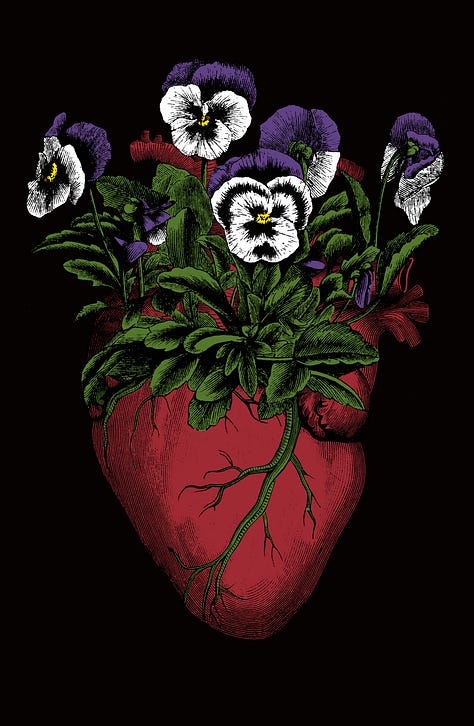
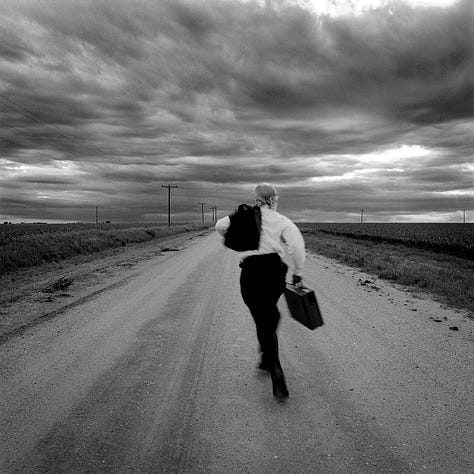
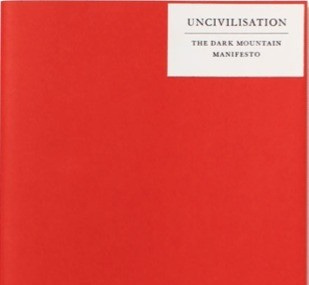
The Dark Mountain online edition is edited by Charlotte Du Cann and Neale Inglenook, our monthly newsletter by Hannah Close. If you would like to contribute to either please do get in touch at info@dark-mountain.net and send us either a pitch, or a News From the Network item (100 words max with image). Our submissions guidelines can be found here.


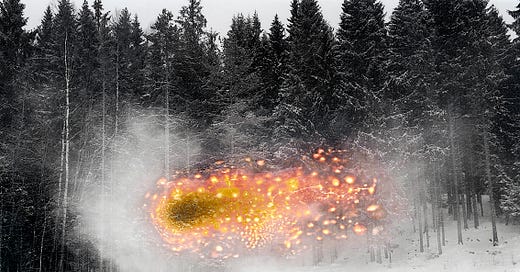



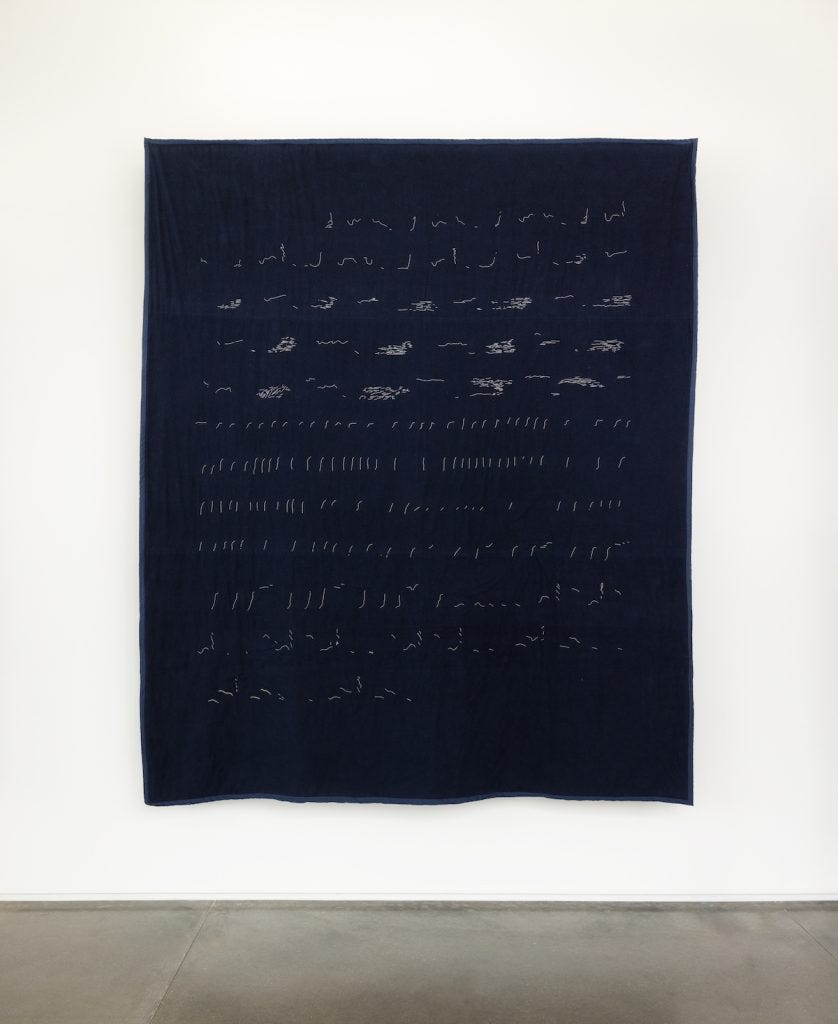
Welcome, and thanks to Charlotte, Neale, and Hannah for all your ongoing contributions through the years! It’ll be fun to revisit some of the classics, and to have the new pieces here in the ‘Stack feed.
So excited to see Dark Mountain here on Substack.